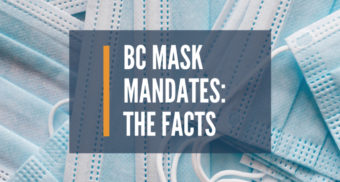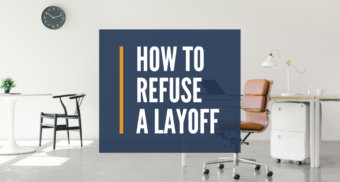COVID-19: Anxious about returning to work? Get the facts – CBC News

With more businesses getting the go-ahead to reopen at varying degrees, some employees are anxious about returning to work during the coronavirus (COVID-19) pandemic. Workers are worried that their health could be at risk.
Do employees have a right not to return to work while the pandemic is still in play throughout Canada?
Employment lawyer Lior Samfiru, partner at Samfiru Tumarkin LLP, reviewed employee rights during the outbreak in an article by CBC News reporter Mark Gollom.
Samfiru said the most common question workers are asking him is whether they have to return to their workplaces if they’re concerned about being infected. Employers are also asking him what they should do if an employee doesn’t want to return.
Do employees have to go back into work if asked?
Samfiru agreed with reality that there is really no choice for the employee. If the workplace is safe, the employee has to return to work. As long as the employer has met the safety requirements and precautions that the provincial and territorial health authorities have put forward, the employee is required to go back.
“Despite the fact that the employee may have concerns or may otherwise feel unsafe, the employee does have to go back.”
READ MORE:
• Can I refuse to return from a layoff because I earn more on the CERB?
If they choose not to, the employer will be well within their rights to consider that a form of misconduct, or, a resignation, meaning simply the worker would lose their job, and any benefit they are currently getting from the government, Samfiru said.
“That notion that many people have that I can simply decide not to come into work — that is incorrect,” he said. “I think a lot of people are going to find themselves on the end of a resignation when they didn’t intend to resign.”
What if an employee doesn’t believe their workplace is safe?
If you don’t believe your employer has put into effect measures or policy to ensure the workplace is as safe as possible, or you think they have failed to meet the government’s safety guidelines, you can engage in a work refusal.
That’s a formal process in which the employee advises the employer about refusal, and the employer has to try to fix the problem, Samfiru said.
If the problem can’t be fixed, an inspector from the Ministry of Labour is called who then reviews the workplace and determines whether in fact the workplace is safe and meets the required criteria. And, ultimately, whatever the inspector says it is binding on the parties, Samfiru said.
“If they say no, that’s unsafe, an employer must make those changes. If the inspector says no, it’s fine, the employee has to go back to work,” he said.
The employee is not required to work during the investigation.
Will many workplace investigations be carried out?
Samfiru said that various provinces understand that this is going to be happening more often, and are hiring more inspectors in order to meet the potential demand for investigations during the coronavirus pandemic.
“The number of businesses that reopen and the number of employees that are affected, I expect this to be a massive issue for the Ministry of Labour in each province to deal with. I think that [the inspectors are] going to be running around the clock 24 hours a day to various businesses.”
What challenges will I encounter if I complain about workplace safety?
Samfiru told CBC News that inspectors are not necessarily trained to deal with these types of situations and said they deal with issues like assessing if a machine is safe, or whether there’s proper equipment in operating a piece of heavy machinery.
“They’re not necessarily there to be able to assess whether the workers are safe from a virus,” he said.
“I do think because of that, some of these individuals are going to find themselves in a situation where they can’t properly assess it so there may be decisions that are made that are not the best decisions.”
What are the consequences if an employee goes back to work and becomes infected with COVID-19?
The best recourse in this case is through workers’ compensation and that in general an employee would not be able to take legal action against their employer, Samfiru said.
“Even if your employer was negligent in the safety precautions that they took, you would have recourse to apply for Workers’ Compensation,” he said.”This would be treated like a workplace accident or workplace injury.”
Those not covered by workers compensation legislation could take legal action if their employer was found to be negligent, Samfiru said.




